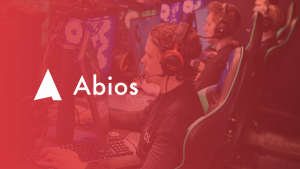With staggering prize pools and record-breaking viewership numbers, the esports scene is thriving.
However, amidst the scene’s growth, one can easily overlook the fact that the young industry is experiencing growing pains. Among these are attempts of match-fixing and cheating, occasionally putting the credibility of the entire industry at risk.

RELATED: The keys to creating an esports platform that sticks
The definition of match-fixing is to dishonestly determine the outcome of a match before it is played. As in all sports, match-fixing, unfortunately, occurs in esports on some level. While it isn’t too common in higher tiers of play, there are instances in lower tiers.
This can either be a consequence of players betting on themselves or players being pressured by syndicates to lose on purpose. If players intentionally and clearly throw matches, it is quickly marked as a match-fixing attempt. The difficulty lies when delving into more granular betting markets, which are starting to grow in prominence. Specific bets, such as the number of kills or deaths for players, are more prone to being fixed while simultaneously being harder to detect.
Oskar Fröberg, the Founder and CEO of esports data provider Abios, shared his thoughts on esports’ integrity concerns, the betting sector and what to keep an eye on in 2022.
What are your thoughts on the current state of match-fixing and cheating in the esports landscape?
OF: Wherever there is a rapid growth in interest, viewership and sponsorship money, there is naturally a risk of attracting actors interested in taking advantage of the system. In such landscapes, there have been and will continue to be people trying to exploit shortcuts to monetary or strategical gains. As such, the first step in addressing this is by becoming aware of the potential issues at hand.
These issues and threats are very real in esports. Many sportsbooks and media companies are looking to esports for a new growth vertical. If they were to find that the esports landscape is unstable or uncredible, they might look elsewhere to allocate their funds. Of course, that would be undesirable for the growth of the industry.
It’s important to note that one should not let the fear of potential match-fixing and cheating attempts cloud the fact that most high tier tournaments have proficient safeguards in place against unsavoury behaviour. As high tier tournaments have moved back to offline LAN events, it’s easier for tournament organisers and their partners to safeguard games against cheating attempts.

RELATED: Abios launches data widgets for esports platforms
Are there any developments in different games you would look out for in terms of cheating or match-fixing?
OF: Attempts of cheating in CS:GO have been around for almost as long as the game itself. Most recently, 35 players have been under ESIC scrutiny as they were suspected of cheating in the Mountain Dew League, an amateur CS:GO tournament. While under investigation, they collectively moved over to Riot Games’ VALORANT. One can only hope that Riot Games and Valve are willing to collaborate on cases like these and take action if the players are deemed guilty.
This isn’t a new development in particular, as several players who have been previously VAC-banned in CS:GO moved to VALORANT upon its release. As we see the story unfold, we hope to see both the CS:GO and VALORANT scene keeping up its competitive integrity.
Do you think these activities could impact the credibility of esports as a competitive field?
OF: No one enjoys watching or betting on a match where the outcome feels unjust or predetermined. It undermines the reason people watch competitive games in the first place. If the issue was more widespread, it would more than likely impact the viewership numbers for games.
Not to mention the risk of damaging relationships with non-endemic brands and sponsors who do not want to be affiliated with teams or games where there is unsportsmanlike behaviour.
What do you think needs to be done to combat these activities?
OF: ESIC is already doing an incredible job given the budget they have, working with various stakeholders to ensure the safety of the industry. It is important that all actors on every level of esports collectively recognise, address and act upon these issues.
Even though it isn’t as exciting as talking about big raids or cheating scandals, the preemptive work is equally as important. Many players in prominent esports teams are young adults, and as such might not be knowledgeable about the risks or implications posed by match-fixing or cheating. What can seem like an easy way to make some quick money or help a team win, might have detrimental consequences for both the player and esports organisation as a whole. Thus, both the players and teams need to be educated in the risks and why they’re not worth the potential short-term rewards.

RELATED: Abios extends coverage to Halo Infinite
What can different stakeholders, such as esports data providers like yourself, do?
OF: As we hold vast amounts of data, we can do two things. Specifically, monitor punter data and watch out for irregular player patterns. In general, we can also help educate individuals and bring the importance of integrity to light.
Since we have the tools to compile and analyse data from sportsbook customers, we can flag suspicious betting behaviour.
When we have access to data directly from the server, we are able to monitor and track player movements and things like reaction times to see if they appear inhumane. This is most prevalent in MOBAs, where players can utilise scripts to take actions faster than humanly possible which can be detected by algorithms.
While we do not want to disclose too much detail publically, we’re continuously looking for new ways of detecting cheating attempts. At Abios we want to protect the future of esports.
[maxbutton id=”4″ ]
From our sponsor Abios
